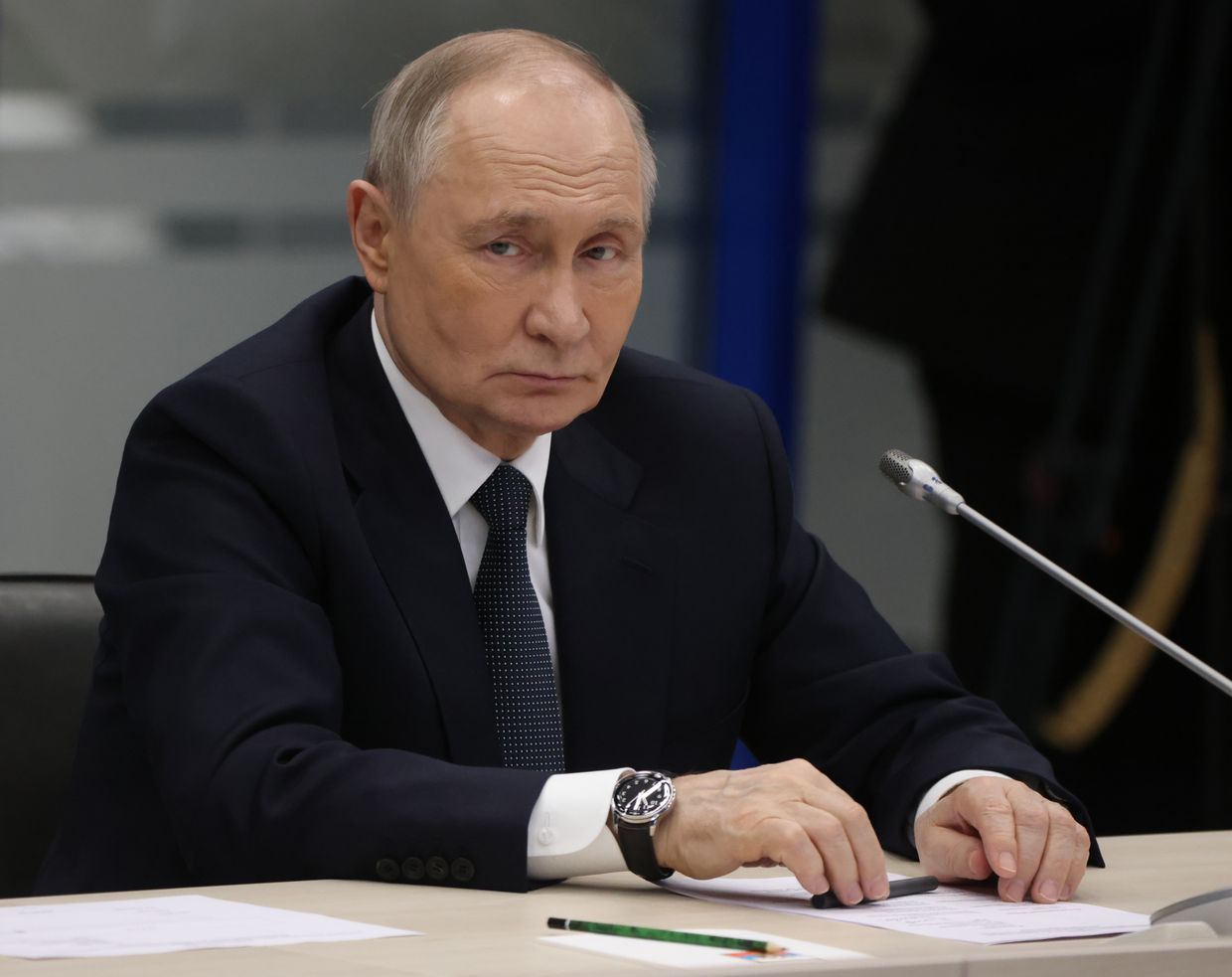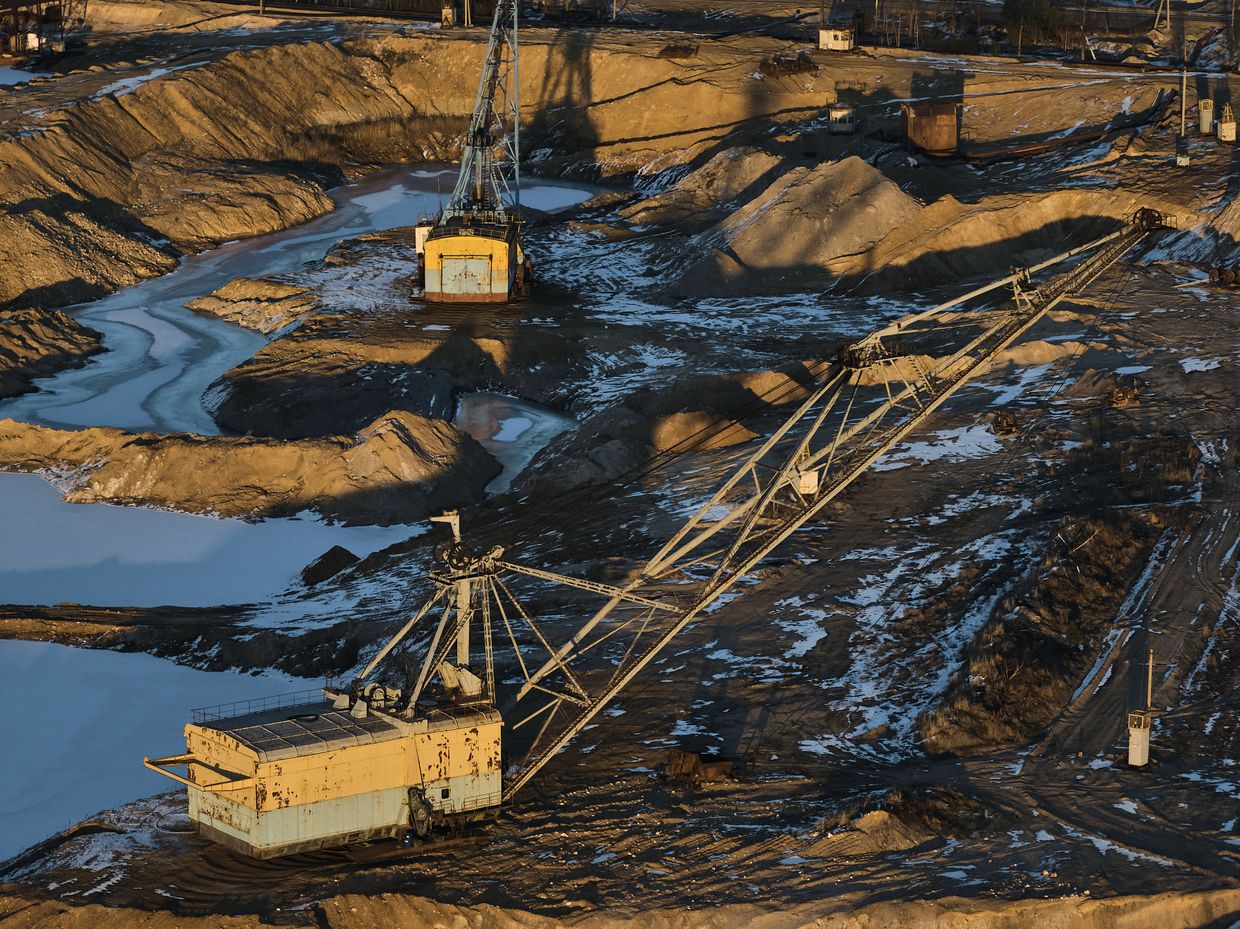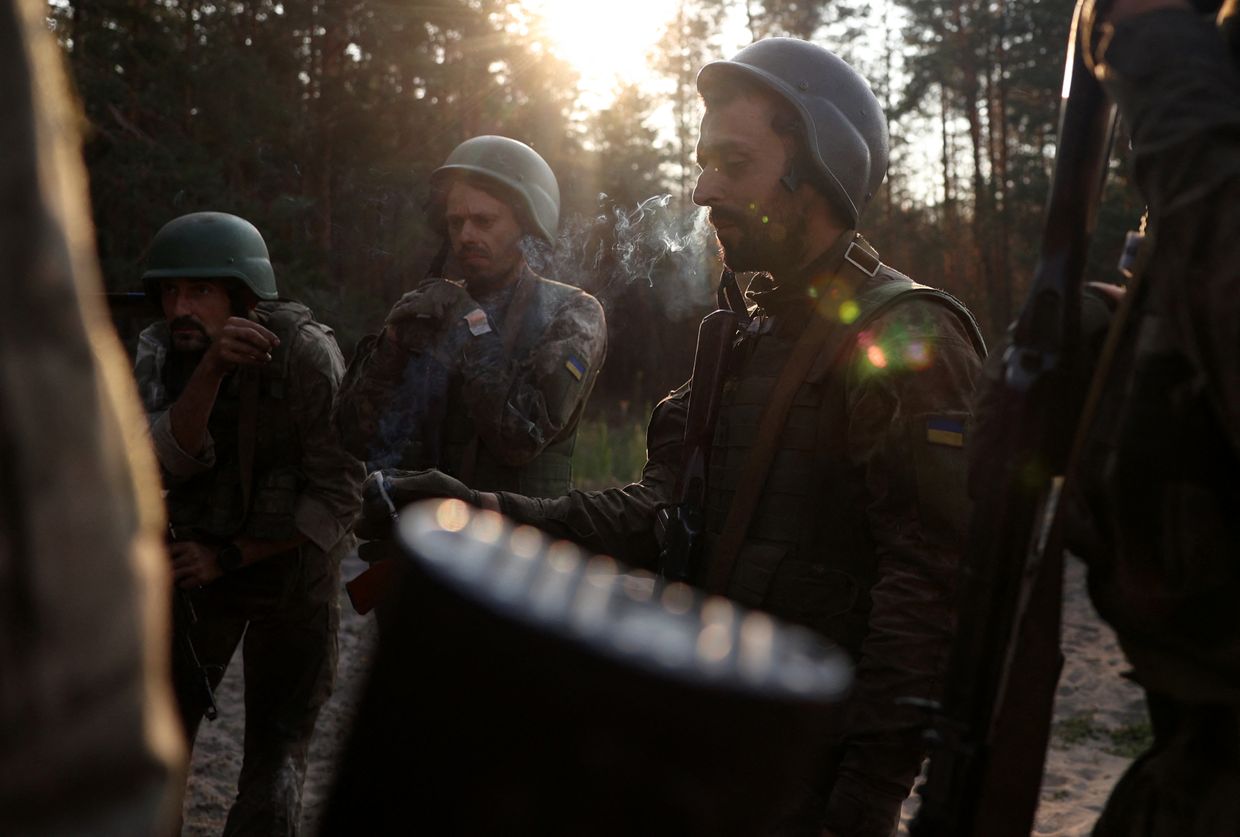Unless you act, 'it's just rhetoric' — Baltic states skeptical of Western European leadership

French President Emmanuel Macron, right, and British Prime Minister Keir Starmer in Paris, France, on Nov. 11, 2024. (Ludovic Marin / POOL / AFP via Getty Images)
As the U.S. chooses an increasingly hostile posture toward Europe, the U.K. and France have been gearing up to lead the continent's defense without Washington.
French President Emmanuel Macron has coined the term "strategic autonomy," which envisions a self-sufficient Europe that can defend itself and export its agenda without the need for American approval.
Those sitting within the range of Russian guns, however — Lithuania, Latvia, and Estonia — are far from ready to ditch the current transatlantic defense model, even under the chaotic leadership of U.S. President Donald Trump.
"Our region — historically reliant on strong transatlantic ties — now faces a changing geopolitical landscape where U.S. commitments to NATO and European security are increasingly uncertain," Eitvydas Bajarunas, ambassador at Lithuania's Foreign Ministry and visiting fellow at the Center for Europe Policy Analysis (CEPA), told the Kyiv Independent.
"I am pleased with the notion of stronger European defense, but we are quite in conflict with the 'strategic autonomy' concept. That's not our aim," Bajarunas said.
US bulwark against Russian threat
Since the end of the Cold War, the Baltic nations, Poland, and other countries of the former Eastern Bloc have seen membership in the U.S.-led NATO as the safest bulwark against a growingly hostile Russia.
Bordering Russia and its ally Belarus, the three Baltic nations understand that the breakdown of this security structure would threaten their very existence.
After Moscow launched its all-out war against Ukraine in 2022, the U.S. dispatched an additional 20,000 troops to reinforce the alliance's eastern frontier, bringing up the total number of its troops on the continent to over 100,000.
Analysts estimate that as of 2024, the U.S. military deployment in Europe included some 14,000 U.S. soldiers in Poland, 1,000 in Lithuania, and 700 in Estonia. While a relatively meager force, their presence ensures that if anybody attacks host countries, they face U.S. soldiers from day one.
Now, Europe fears that the Trump administration might withdraw the 20,000 soldiers sent by then-U.S. President Joe Biden as it seeks a rapprochement with the Kremlin and a swift peace deal in Ukraine.

Trump also declared that the U.S. would not defend NATO members who do not spend their share on defense. Theoretically, this should not worry Poland or the Baltic states — the alliance's leading spenders — but such a direct challenge to Article 5 is more than concerning.
While the four countries plan to raise their defense spending to 5% of GDP or more in the coming years, they would be hard-pressed to face Russia on their own.
The combined population of the three Baltic states is just some 6 million. Even in Poland, a country of nearly 40 million, security officials warn that the military has enough supplies to resist enemy aggression for a "week or two" before NATO would have to step in.
Balancing between Europe and US
Days after his visit to Washington, Macron said on Feb. 28 that Europe must "rediscover taste for risk, ambition, and power" and abandon its "happy vassalage" under the U.S.
This Gaullist perspective is at odds with U.K. Prime Minister Keir Starmer, who seeks to mobilize Europe's commitment without burning bridges with the U.S.
Poland and the Baltics have welcomed Europe's security resurgence, and their leaders even spoke positively about Macron's proposal to extend the French nuclear umbrella to include European allies.
European troops also have a significant presence in the Baltic countries, with a German-led NATO battlegroup stationed in Lithuania and a U.K.-French battlegroup in Estonia.
Indeed, some see Trump's foreign policy shift as a wake-up call for European countries to take responsibility for their security.
If Europe does not wake up now, "we might have to declare it dead," former Lithuanian Foreign Minister Gabrielius Landsbergis told the Kyiv Independent in an interview in February.

"We recognize a need for Europe to take greater responsibility and contribute more for transatlantic security. More European leadership is needed for European security," a spokesperson of the Latvian Foreign Ministry told the Kyiv Independent.
But few are ready to shut the door on the transatlantic ties. NATO's easternmost members feel that despite that ongoing European rhetoric, without the U.S., their security is at risk.
Much of the skepticism stems from a poor record of strong European commitment.
"...Unless you pay for something, then it's just a lot of rhetoric."
"Unfortunately, historically, Europe's defense initiatives have often been limited to mere discussions or over-ambitious and controversial plans for 'European Army' without substantial practical implementation," the Lithuanian diplomat added.
"...Unless you pay for something, then it's just a lot of rhetoric," said Estonia's former president, Toomas Hendrik Ilves, pointing to the fact that France — among others — blocked the EU's planned 40 billion euro ($43 billion) military aid package for Ukraine.
Another glaring fact is that France, a military powerhouse and the EU's second-largest economy, committed only some 0.18% of its GDP in bilateral aid and 0.34% under the EU auspices to Ukraine.
In comparison, Estonia is on top of the scoreboard with 2.2% of its GDP in bilateral aid, with Lithuania and Latvia coming in third and fourth with 1.8% and 1.5%, according to the Kiel Institute for the World Economy.
The Baltic countries have lauded the European Commission's ReArm plan to unleash 800 billion euros ($861 billion) in defense spending and have reinforced security cooperation within bilateral and regional formats, such as the U.K.-led Joint Expeditionary Force (JEF).
However, "it is crucial that these efforts do not lead to the creation of structures that duplicate or compete with NATO," Bajarunas stressed, presenting them instead as a chance to enhance "Europe's contribution to collective defense."
"More cooperation and synergies are needed between the EU and NATO to close capability gaps. Stronger Europe means stronger NATO," the Latvian Foreign Ministry spokesperson said.
Shifting balance of power
When Starmer hosted the leaders of 15 countries on March 2 to discuss security guarantees for Kyiv, there were three notable omissions among the invitees — Lithuania, Latvia, and Estonia.
The episode, which ended with Starmer issuing an apology, is emblematic of concerns about Western European leadership — a tendency to sidestep those on the eastern flank.
The disparity between the Baltics and some Western nations in terms of resources allocated to Ukraine and defense evokes a sense of unfairness.
"If Lithuania… spends 5% of GDP (on defense) because we're worried that (Russian President Vladimir) Putin will come for us, and Belgium spends 2.1% of its GDP because they're not worried," it means it will be only Lithuania's "schools and roads and police that will suffer," Landsbergis told the Kyiv Independent.
"But what we are really defending is Europe. We will be defending Belgium as well," the former minister added when discussing European defense spending plans.
According to Ilves, Western Europe has traditionally been "completely dominant" in political and military matters, even after the eastward enlargement of the EU and NATO. But Russia's all-out invasion of Ukraine may have marked a shift.
In 2024, two Baltic politicians came to lead the European Commission's top foreign and security policy posts — Kaja Kallas from Estonia as the High Representative for Foreign Affairs and Andrius Kubilius from Lithuania as the Defense Commissioner.

The situation "has slowly changed, we're (the Baltics) getting in a better position, mainly because of Poland… You cannot ignore Poland," Ilves said.
Poland has emerged as a new heavyweight on the European security scene with massive purchases of tanks, jets, and other military hardware, aiming to spend 4.7% of GDP on defense this year.
The Polish voice also became more relevant with Prime Minister Donald Tusk's pro-European shift and the revitalization and expansion of formats like the Weimar Triangle, which also includes France and Germany.
These developments seem to be inspiring a more "inclusive approach to defense planning" and "efforts to integrate Eastern European perspectives into broader defense strategies, Bajarunas said.
But despite the surge of activity in London, Paris, and Brussels, nations in close proximity to Russia continue to pin their hopes on the U.S. Efforts to keep Trump in the game are evidenced by a recent trip of Finnish President Alexander Stubb to Mar-a-Lago over the weekend.
Stubb's visit was "unofficial," according to a press release from the Finnish government. It involved breakfast, lunch, and a round of golf.
Even though the Baltics, as well as Poland and the Nordic countries, have demonstrated their commitment to defense, Trump provided few assurances in return. His recent steps signal that a major restructuring of Europe's security order may be inevitable.












